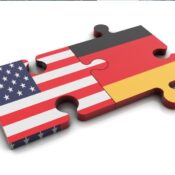
Sahelian states under junta rule out rejoining the West African economic grouping
Three military-run West African nations, Niger, Mali, and Burkina Faso, signed a confederation treaty on Saturday, demonstrating their resolve to forge on together outside of a regional economic bloc that has been pressuring them to revert to democratic governance.
The agreement, which occurred during the Alliance of Sahel States’ (AES) inaugural meeting, represents a closer alignment of the neighbors in the central Sahel region, which is riven by insurgency. In the three states between 2020 and 2023, juntas overthrew their governments in a series of coups and broke their diplomatic and military links with Western nations and regional allies.
“The culmination of our determined common will to reclaim our national sovereignty” is how General Abdourahamane Tiani, the head of Niger’s military, put the AES summit.
The formalization of the confederation treaty validates Niger, Mali, and Burkina Faso’s rejection of the 15-member Economic Community of West African nations (ECOWAS). Its signature occurs one day before of an ECOWAS conference, where the organization had hoped to convince the three to rethink their January decision to leave the bloc.
In a speech, Tiani declared, “Our peoples have irrevocably turned their backs on ECOWAS.” “It is up to us today to make the AES Confederation an alternative to any artificial regional group by building … a community free from the control of foreign powers.”
As it fights to limit a ten-year war with Islamist rebels and develop economies that are among the world’s poorest, it is unclear how tightly the AES will synchronize political, economic, and defense objectives.
The three nations decided to form a combined force in March to address security challenges on their own borders.
Their finance ministers declared in November that they would consider the possibility of establishing a monetary union, and other high-ranking politicians have expressed support for doing away with the CFA franc, the shared currency of West Africa, in varied degrees.
ECOWAS has endeavored diplomatically to discourage the trio of nations from abandoning the half-century-old relationship. Decades of regional integration will be reversed by the split, which also poses a risk of a messy detachment from trade and services flows valued at about $150 billion annually.
The ECOWAS’s decision to impose harsh sanctions in response to the three coups and its unfulfilled threat to deploy force to restore constitutional government in Niger last year are linked to the falling out.
The regional group is under fire from Niger, Mali, and Burkina Faso for allegedly betraying its core principles and providing insufficient backing to counter Islamist insurgencies that have resulted in thousands of fatalities and forced over 3 million more to from their homes.
The three governments have cultivated stronger defense, diplomatic, and commercial connections with Russia at the expense of former colonial power France, regional heavyweight Nigeria, and the United governments. These strategies of the juntas have changed international influence in the central Sahel.
All Categories
Recent Posts
Tags
+13162306000
zoneyetu@yahoo.com



